“Welcome to Wrexham” and a fantasy of sports ownership
The documentary series has me thinking about the realities of owning a sports team.
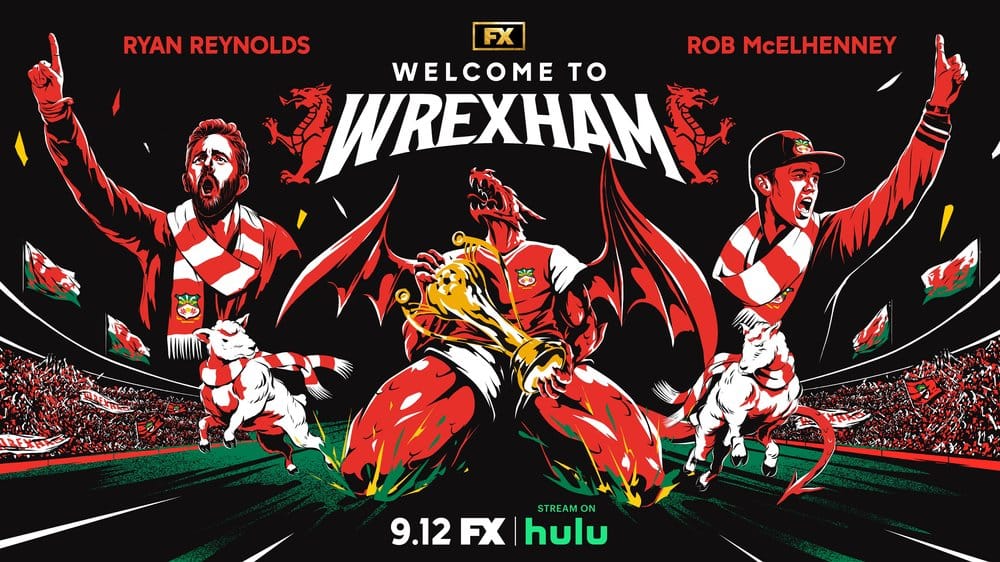
I realize this is a newsletter about the Colorado Rockies, but on occasion, I like to consider topics that are, well, Rockies-adjacent. This is one of those times. Look for the regular newsletter on Friday.
★ ★ ★
Over the last week, I’ve been bingeing Welcome to Wrexham, the story of a Wrexham AFC, a professional association football club located in Wrexham, Wales. In case you’re unfamiliar with the story, the Red Dragons had fallen on hard times (due in large part to a greedy owner’s mismanagement) and were playing in levels below the Premier League and English Football League.
It was a bad time for all involved.
In February 2021, actors Rob McElhenney and Ryan Reynolds (yes, those actors) completed their purchase of Wrexham AFC and, eventually, the historic Racecourse Ground, the world’s oldest football stadium, in which the Red Dragons play.
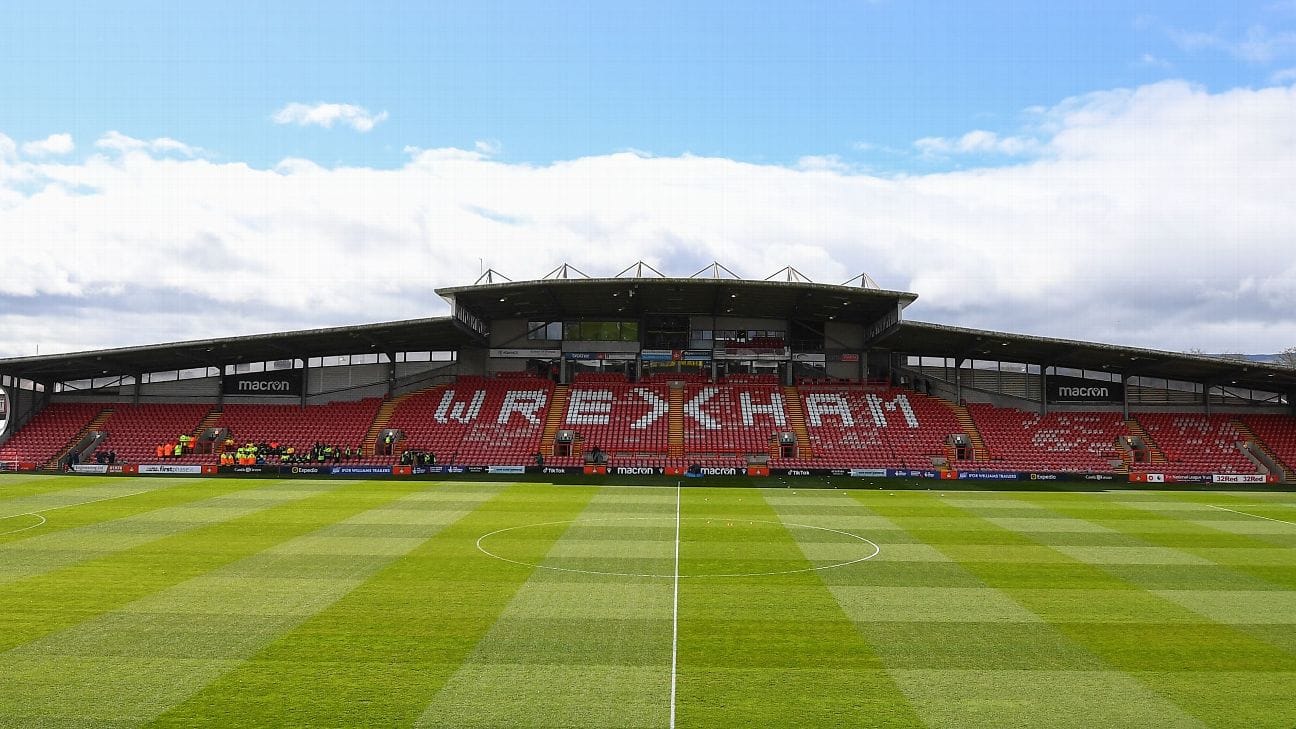
The relegated football club was also a metaphor for its struggling community, formerly a mining center that had fallen on hard times as well.
Football enthusiasts, McElhenney and Reynolds make clear their intentions: to make Wrexham a competitive football club playing in the Premier League and, by extension, revive the community. In other words, they are community-centered owners.
I want to be clear at the outset: McElhenney and Reynolds are skilled storytellers, so even though their documentary is compelling, it’s important to remember who’s telling the story and determining what will be seen and what will not be seen. A dose of skepticism is merited.
But here are the kinds of things McElhenney and Reynolds do:
• They bring in good players — Although Wrexham is operating under a tight budget (that largely rests on the club’s potential promotion), McElhenney and Reynolds bring in players to improve the team. For example, initially they bring in striker Paul Mullin and forward Ollie Palmer along with winger James McClean and retired goal keeper Ben Foster. None of this is cheap, but McElhenney and Reynolds are committed to to winning, and they spend the money to make it happen.
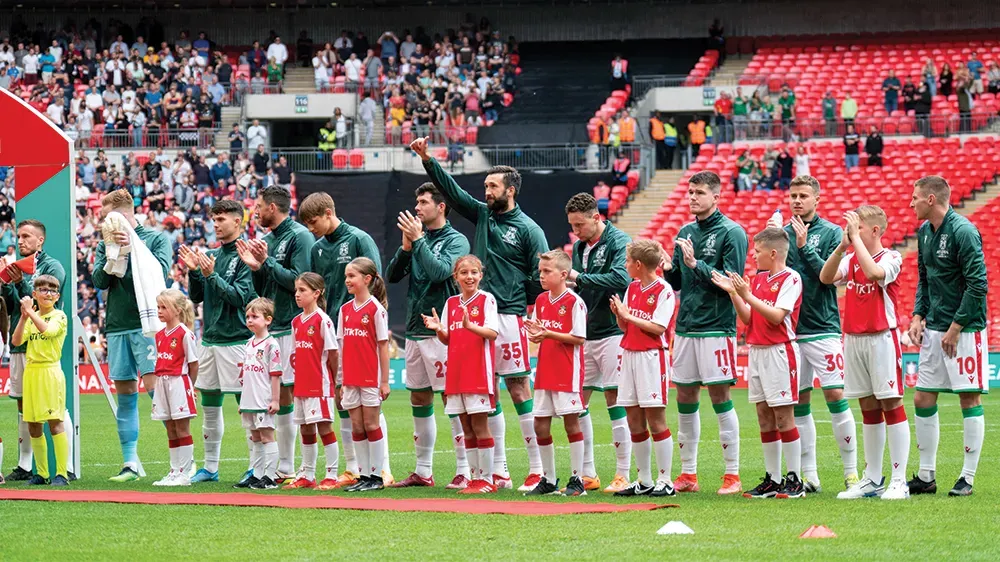
Contrast this to the “limited financial flexibility” MLB fans are bombarded with. Teams “have to stay under the salary cap,” or “tank for a rebuild,” or maybe they’re the Tampa Bay Rays.
Non of that is happening in Wrexham. McElhenney and Reynolds want to win, and they want to win now — for the community (and for themselves, probably) — and they spend the money to do it. If you’re a sports fans, you’ve probably dreamed of an ownership group so committed to winning.
McElenney and Reynolds provide a contrast to the reality of American sports.
• They’re invested in the community — A key component of McElhenney and Reynold’s storytelling involves making both the players and some members of the community essential elements of the story.
In terms of they players, Wrexham makes clear that athletes are real people with lives beyond the stadium: One player is learning how to parent his autistic son; another player and his partner lose their child; still another must support his wife through a brain cancer diagnosis. If you’ve spent any time around a professional clubhouse, you know that players, like anyone, lead complicated lives. In addition to struggling with winning and losing, the players of Wrexham FC illustrate this point. (And it makes for compelling storytelling. Welcome to Wrexham is all about telling good stories.)
Moreover, like any successful sports franchise, players move on or are left behind as better ones join The team. It’s a tough decision for all involved, but the success if the Red Dragons is always foregrounded, and those kinds of moves are necessary for continued success.
Then there are community members: A recently divorced father with young children; the owner of a local pub; two middle-aged women who have coffee and talk about football along with Arther Massey, their centenarian fried and lifelong fan; Wayne Jones, the owner of The Turf pub. The list goes on. It’s a way of personifying fandom — and if you’re a sports fan, you will identify immediately with the concerns and complicated livesof those fans.

It speaks to the universal nature of fandom and the ways in which sports bring a community together.
They are also committed to describing local history and respecting Welsh culture, a key point for a country whose existence has been shaped by the tension in its relationship with the British empire.
In addition to investing in the team, though, McElhenney and Reynolds want to improve the Racecourse, which is a key character itself. If you’re an American sports fan, this probably conjures visions of Wrigleyville or the awful things John Fisher is doing with The Athletics or any other real estate venture connected to a professional sports team. (For Rockies fans, that would be The Rooftop and McGregor Square.)
That’s not where McElhenney and Reynolds are headed, though — in fact, they are always concerned with ways in which the decisions they make will affect local businesses. They want to improve the Racecourse because they see it as part of their commitment to Wrexham, and they want to get more fans in. (With the Red Dragons’ success, ticket prices explode.) Theirs is not an exploitative vision.
• They’re inclusive — One of the first steps McElhenney and Reynolds take is to ensure the Racecourse is inclusive for people with disabilities. One character the show follows is Millie Tipping, a young woman on the autism spectrum, a devoted fan who sits in the section de-signed for those with sensory issues. (The scene where she presents Paul Mullins with some gifts for his autistic son is just breath-taking.) Kerry Evans, a wheelchair user and disability liaison officer, is an early hire.
The welcome immigrants, both to the team and community, and tell their stories, showing the universal appeal of sports in building communities. (I had not idea there was a Welsh community in Patagonia following a mid-19th-century migration. Welcome to Wrexham is fascinated by telling those stories.)
Moreover, McElhenney and Reynolds sponsor — and are equally excited — about Wrexham’s women’s football club, and they highlight the disparities women sports experiences in the current system.
At one point, Ollie Palmer tells the story of his father coming out, and McElhenney explains, too, that his mother has long been in a same-sex relationship.
If you’ve ever been embarrassed by the ownership of your team and their unwillingness to include everyone, Welcome to Wrexham provides a refreshing antidote.
• They’re just better at the celebrity that goes with being an owner — Perhaps you’ve been embarrassed by the political leanings and donations of the person who owns your favorite sports team. Maybe you’d prefer not to know some of the folks owners socialize with in their private suites.
That is not the case with Rob McElhenney and Ryan Reynolds.
Look, they are funnier and better looking than most other owners. (I mean, we’re talking about Deadpool here.) And they have cooler friends, celebrities who routinely make their way into the Wrexham clubhouse: Eva Longoria, Will Ferrell, Billie Joe Armstrong, Channing Tatum to film a Super Bowl commercial — the list is long.
They are visited by the King of England for crying out loud!
One of the interesting themes that emerges during the course of Welcome to Wrexham is that while McElhenney and Reynolds are wealthy, they are substantially less wealthy than many of their fellow football club owners. Instead, McElhenney and Reynolds have chosen to spend something they have in abundance: a likable celebrity that captures attention. (It’s also an interesting commentary on the shifting market for what’s valuable.)
So far, it’s working — and it casts them as an underdog in contrast to the other owners, thus the owners mirror their team.
So what’s the point?
While I’ve been watching Wrexham, I’ve been thinking about how unreal this is based on my experience as a sports fan and writer. I mean all of this would be awesome, but it doesn’t happen in most fans’ sports experience.
The Tampa Bay Rays say they’ll sell — or maybe not. The Baltimore Orioles get a new owner who says he’ll spend, but the next year, there’s not enough pitching. The Colorado Rockies are historically bad, and yet the owner promotes one of his sons instead of making substantial changes. The Arizona Diamondbacks threaten to leave if they don’t get stadium improvements. Steven Cohen is planning an entertainment complex around the Mets. And John Fisher is his own special level of awful.
Just to be clear: McElhenney and Reynolds are doing their own promoting. We are, after all, learning this story through a television documentary series they have sold to FX. Gone is the kit advertisements for a local trailer company, Ifor Williams, replaced by – what else? — TikTok (and later United Airlines). The branding is a constant theme of Welcome to Wrexham. (Richard Sutcliffe has an interesting breakdown of Wrexham’s most recent financial statement here, and sponsorships are key.)
In other words, they’re staying out of real estate, but McElhenney and Reynolds have an angle, too, and they’re clear that they are targeting a global audience with this version of the Red Dragons: They see North America as a primary market.
They are, then, hoping to snag people like me, a US sports fan who never really got into football, but maybe if they give me a compelling story and a competitive team along with a pair of friendly North American conduits, I will.
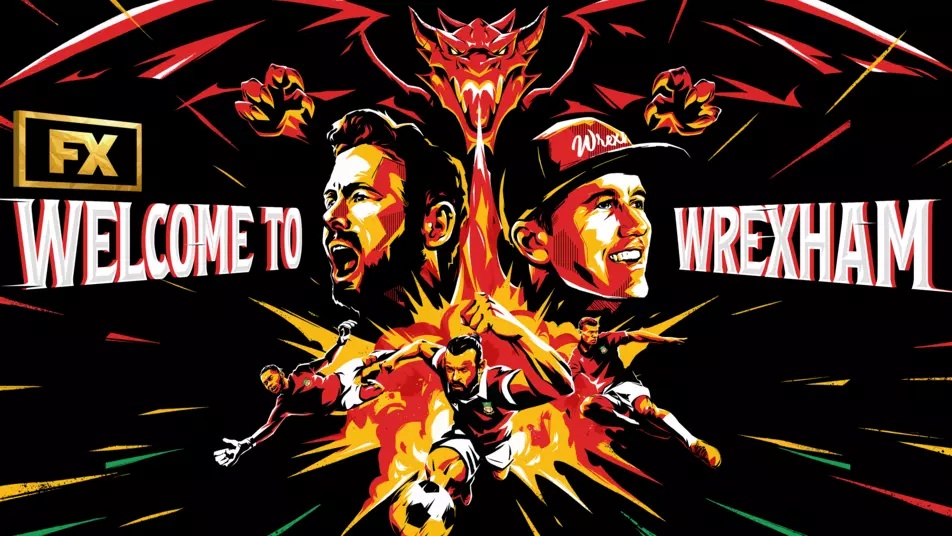
I realize this is a newsletter about the Colorado Rockies, but Welcome to Wrexham has provided another lens (albeit a carefully curated one) through which to view sports. Look, if Rob McElhenney and Ryan Reynolds want to buy the Rockies, I would be very here for it.
But I also realize that any documentary involves storytelling and a level of fiction. In other words, their ownership provides a level of fantasy that is largely incompatible with my experience of American sports.
Maybe it shouldn’t be.
Maybe we should all demand more of those who own our sports teams, even if they’re not Deadpool.
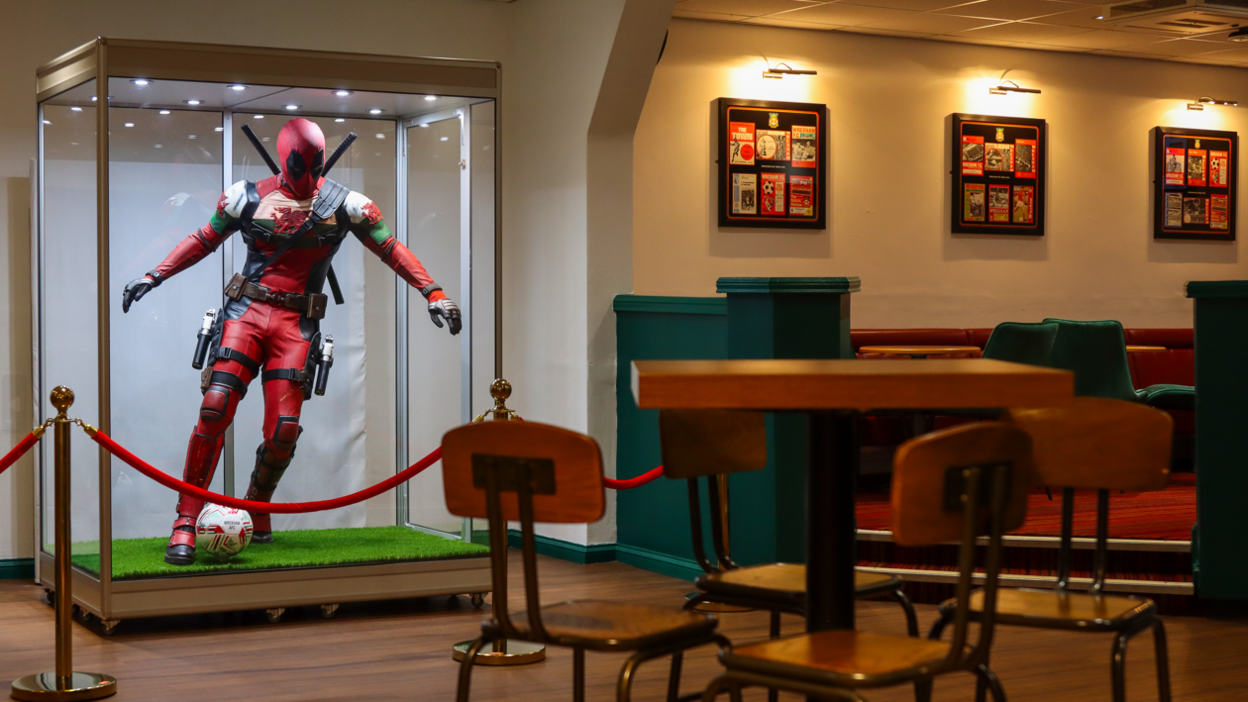
(You’ll have to watch the series to get the joke.)
There’s a lot of music involved in Welcome to Wrexham (another way in which McElhenney and Reynolds are much cooler than many sports team owners), but I thought I’d leave you with this gem by the Declan Swans, which is just vintage sports fandom.
It’s not always easy, but fandom is the best.
Rockies Pitch is a newsletter that focuses on Colorado Rockies baseball. Find me on Bluesky at @ReneeDechert.com or send an email to Renee@RockiesPitch.com.





